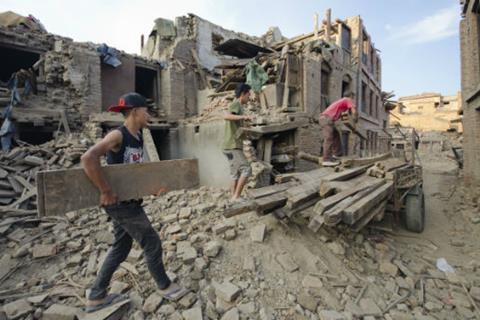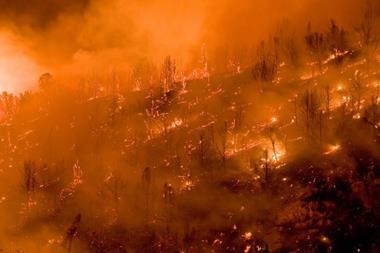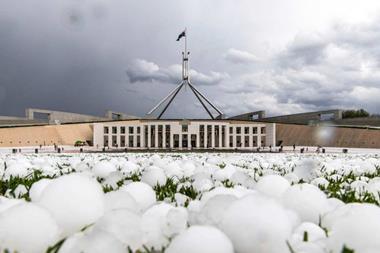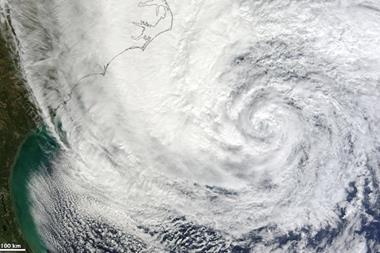Pressure is mounting on businesses and organisations to take a more holistic approach to their operations and address the mental health fall-out from any man-made or natural disasters.
Risk managers have traditionally bought commercial insurance to protect their physical assets and to ensure compensation from the financial impact of any major incident from man-made or natural disasters involving fire, flood, storm, terrorist attack etc.
However, the psychological, post-incident harm caused to survivors including staff, guests, visitors, and passers-by that get caught in an incident, is, for the most part, ignored.

Consequently, little is done to return them to the same state of mental health they enjoyed prior to the incident.
But pressure is building for change, due to shifting societal expectations, litigious activity, and through legislative and regulatory changes.
There is, for example, increasing pressure on businesses to demonstrate and deliver on their Corporate Social Responsibility and Environmental, Social and Governance strategies.
This goes hand in hand with an increase in awareness of the need to embrace and address mental health challenges and protect the vulnerable.
What does it mean for risk managers?
Recent global incidents ranging from mass shootings, bombings, flooding, wildfires, and earthquakes all continue to highlight the absence of any co-ordinated trauma counselling response.
Graeme Mackenzie, Managing Partner, MBL Global explained: “The need to address what MBL Global has termed Human Indemnity could not be more pressing.
“The new Protect Duty Bill in the UK, which other territories are expected to follow, will also add to this pressure for risk managers to embrace the bigger picture and their business’ wider responsibilities to their staff, their users, and their local communities.”
“The need to address what MBL Global has termed Human Indemnity could not be more pressing.”
”By providing a trauma counselling service in the aftermath of a major event, risk managers can not only enhance their company’s reputation but reduce the potential impact of business interruption with employees returning to work quicker, and future visitors/guests more likely to return sooner.
“It can also reduce the likelihood of any future class action, particularly in the US, and of course, help meet CSR and ESG strategies.”
What next? - a new solution
A new solution is starting to make inroads within the insurance market. An industrial-scale, global trauma counselling programme is being made available as an add-on service to traditional property insurance cover.
This can then be provided to the likes of shopping centres, hotel chains, schools, and public buildings etc, as well as for specialist policies such as single shooter, political violence, or crisis management.
The service provides a co-ordinated, comprehensive rapid response and post-event counselling service, which is targeted and event-specific,
This includes 1:1, virtual, group and telephonic post-event case management as required to those in the vicinity of any event. This can help return them to the state of mental health they enjoyed prior to the incident.
”The insurance market… can step up to this challenge, enabling clients to… understand the human cost of incidents, and make a real difference to their own business and to wider society.”
Mackenzie said: “Trauma counselling is always provided at or near to the scene where possible, an incident file opened and those affected are invited to join the programme on-site or post the event via a helpline. Individual case files and coordinated counselling as may be required is then provided.
“Case files are able to be transferred from country to country should the victim need to move location, for example, perhaps return home – locally or internationally.”
The counselling is designed to reduce stress, enable individuals to share their experiences and remove any feelings of anger, thus mitigating the onset of PTSD, helping them to process the incident and get back on with their lives as soon as possible.
Mackenzie added: “The insurance market… can step up to this challenge, enabling clients to differentiate themselves from their peers, protect their own reputations, understand the human cost of incidents, and make a real difference to their own business and to wider society.”
Case study
In 2021 there was an outbreak of political unrest in Durban, South Africa, resulting in mass scale looting and destruction over an intense four-day period. It saw local business premises burnt down and destroyed, the violence flaring up overnight, creating trauma at a social, community and business level.
MBL Global’s insurance client, which provides political violence cover to major retailers in South Africa, offered the trauma service within 24 hours of the incident starting.
MBL set up a telephone hotline enabling any individuals, within a 500-metre radius of any of the insured’s premises, to access the trauma service which remained accessible to those that qualified for 12 weeks, post event.
As a result, rehabilitative trauma counselling was successfully provided to over 400 small business owners.




















No comments yet